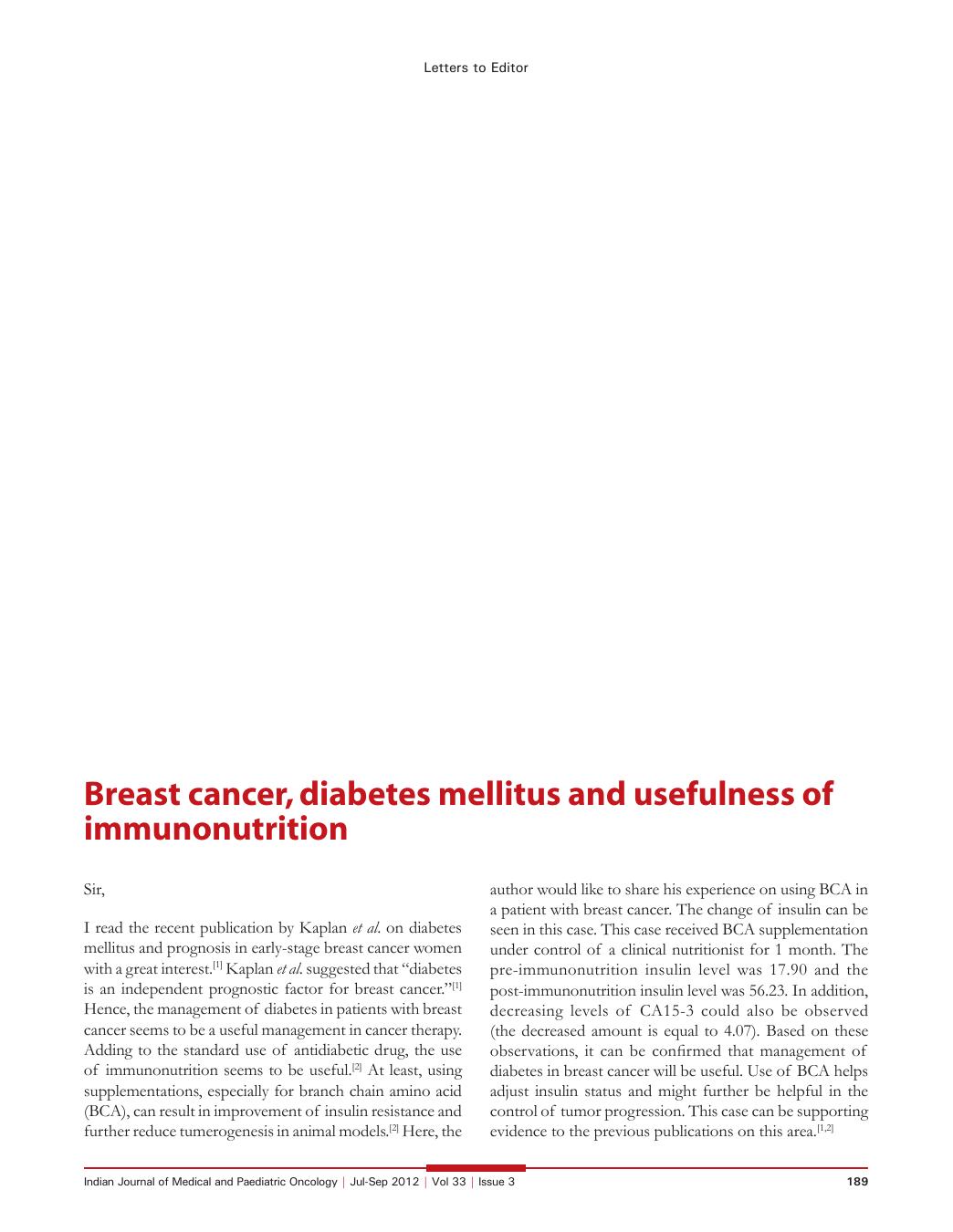Breast cancer, diabetes mellitus and usefulness of immunonutrition
CC BY-NC-ND 4.0 · Indian J Med Paediatr Oncol 2012; 33(03): 189-190
DOI: DOI: 10.4103/0971-5851.103155

Publication History
Article published online:
02 August 2021
© 2012. Indian Society of Medical and Paediatric Oncology. This is an open access article published by Thieme under the terms of the Creative Commons Attribution-NonDerivative-NonCommercial-License, permitting copying and reproduction so long as the original work is given appropriate credit. Contents may not be used for commercial purposes, or adapted, remixed, transformed or built upon. (https://creativecommons.org/licenses/by-nc-nd/4.0/.)
Thieme Medical and Scientific Publishers Pvt. Ltd.
A-12, 2nd Floor, Sector 2, Noida-201301 UP, India
Sir,
I read the recent publication by Kaplan et al. on diabetes mellitus and prognosis in early-stage breast cancer women with a great interest.[1] Kaplan et al. suggested that “diabetes is an independent prognostic factor for breast cancer.”[1] Hence, the management of diabetes in patients with breast cancer seems to be a useful management in cancer therapy. Adding to the standard use of antidiabetic drug, the use of immunonutrition seems to be useful.[2] At least, using supplementations, especially for branch chain amino acid (BCA), can result in improvement of insulin resistance and further reduce tumerogenesis in animal models.[2] Here, the author would like to share his experience on using BCA in a patient with breast cancer. The change of insulin can be seen in this case. This case received BCA supplementation under control of a clinical nutritionist for 1 month. The pre-immunonutrition insulin level was 17.90 and the post-immunonutrition insulin level was 56.23. In addition, decreasing levels of CA15-3 could also be observed (the decreased amount is equal to 4.07). Based on these observations, it can be confirmed that management of diabetes in breast cancer will be useful. Use of BCA helps adjust insulin status and might further be helpful in the control of tumor progression. This case can be supporting evidence to the previous publications on this area.[1,2]


 PDF
PDF  Views
Views  Share
Share

